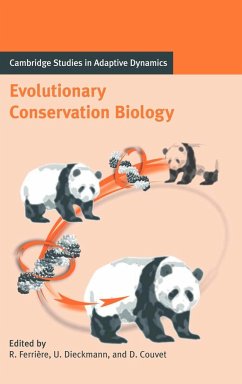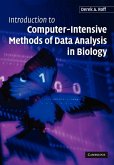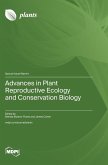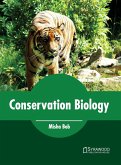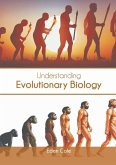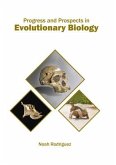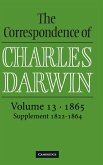Presents an introduction to the area of evolutionary conservation biology.
As anthropogenic environmental changes spread and intensify across the planet, conservation biologists have to analyze dynamics at large spatial and temporal scales. Ecological and evolutionary processes are then closely intertwined. In particular, evolutionary responses to anthropogenic environmental change can be so fast and pronounced that conservation biology can no longer afford to ignore them. To tackle this challenge, areas of conservation biology that are disparate ought to be integrated into a unified framework. Bringing together conservation genetics, demography, and ecology, this book introduces evolutionary conservation biology as an integrative approach to managing species in conjunction with ecological interactions and evolutionary processes. Which characteristics of species and which features of environmental change foster or hinder evolutionary responses in ecological systems? How do such responses affect population viability, community dynamics, and ecosystem functioning? Under which conditions will evolutionary responses ameliorate, rather than worsen, the impact of environmental change?
Table of content:
Contributing authors; Acknowledgements; Notational standards; 1. Introduction Régis Ferrière, Ulf Dieckmann and Denis Couvet; Part A. Theory of Extinction: Introduction; 2. From individual interactions to population viability Wilfried Gabriel and Régis Ferrière; 3. Age structure, mating system and population viability Stéphane Legendre; 4. Spatial dimensions of population viability Mats Gyllenberg, Ilkka Hanski and Johan A. J. Metz; Part B. The Pace of Adaptive Responses to Environmental Change: Introduction; 5. Responses to environmental change: adaptation or extinction Richard Frankham and Joel Kingsolver; 6. Empirical evidence for rapid evolution David Reznick, Helen Rodd and Leonard Nunney; 7. Genetic variability and life-history evolution Kimberly A. Hughes and Ryan Sawby; 8. Environmental stress and quantitative genetic variation Alexandra G. Imasheva and Volker Loeschcke; Part C. Genetic and Ecological Bases of Adaptive Responses: Introduction; 9. Fixation of new mutations in small populations Michael C. Whitlock and Reinhard Bürger; 10. Quantitative-genetic models and changing environments Reinhard Bürger and Christoph Krall; 11. Adaptive dynamics and evolving biodiversity Ulf Dieckmann and Régis Ferrière; Part D. Spatial Structure: Introduction; 12. Genetic structure in heterogeneous environments Oscar E. Gaggiotti and Denis Couvet; 13. Conservation implications of niche conservatism and evolution in heterogeneous environments Robert D. Holt and Richard Gomulkiewicz; 14. Adaptive responses to landscape disturbances: theory Kalle Parvinen; 15. Adaptive responses to landscape disturbances: empirical evidence Bruno Colas, Chris D. Thomas and Ilkka Hanski; Part E. Community Structure: 16. Coevolutionary dynamics and extinction Judith Bronstein and Ulf Dieckmann; 17. Ecosystem evolution and conservation Michel Loreau, Claire de Mazancourt and Robert D. Holt; 18. The congener as an agent of extermination and rescue of rare species Donald A. Levin; 19. Epilogue Régis Ferrière, Ulf Dieckmann and Denis Couvet; References; Index.
Hinweis: Dieser Artikel kann nur an eine deutsche Lieferadresse ausgeliefert werden.
As anthropogenic environmental changes spread and intensify across the planet, conservation biologists have to analyze dynamics at large spatial and temporal scales. Ecological and evolutionary processes are then closely intertwined. In particular, evolutionary responses to anthropogenic environmental change can be so fast and pronounced that conservation biology can no longer afford to ignore them. To tackle this challenge, areas of conservation biology that are disparate ought to be integrated into a unified framework. Bringing together conservation genetics, demography, and ecology, this book introduces evolutionary conservation biology as an integrative approach to managing species in conjunction with ecological interactions and evolutionary processes. Which characteristics of species and which features of environmental change foster or hinder evolutionary responses in ecological systems? How do such responses affect population viability, community dynamics, and ecosystem functioning? Under which conditions will evolutionary responses ameliorate, rather than worsen, the impact of environmental change?
Table of content:
Contributing authors; Acknowledgements; Notational standards; 1. Introduction Régis Ferrière, Ulf Dieckmann and Denis Couvet; Part A. Theory of Extinction: Introduction; 2. From individual interactions to population viability Wilfried Gabriel and Régis Ferrière; 3. Age structure, mating system and population viability Stéphane Legendre; 4. Spatial dimensions of population viability Mats Gyllenberg, Ilkka Hanski and Johan A. J. Metz; Part B. The Pace of Adaptive Responses to Environmental Change: Introduction; 5. Responses to environmental change: adaptation or extinction Richard Frankham and Joel Kingsolver; 6. Empirical evidence for rapid evolution David Reznick, Helen Rodd and Leonard Nunney; 7. Genetic variability and life-history evolution Kimberly A. Hughes and Ryan Sawby; 8. Environmental stress and quantitative genetic variation Alexandra G. Imasheva and Volker Loeschcke; Part C. Genetic and Ecological Bases of Adaptive Responses: Introduction; 9. Fixation of new mutations in small populations Michael C. Whitlock and Reinhard Bürger; 10. Quantitative-genetic models and changing environments Reinhard Bürger and Christoph Krall; 11. Adaptive dynamics and evolving biodiversity Ulf Dieckmann and Régis Ferrière; Part D. Spatial Structure: Introduction; 12. Genetic structure in heterogeneous environments Oscar E. Gaggiotti and Denis Couvet; 13. Conservation implications of niche conservatism and evolution in heterogeneous environments Robert D. Holt and Richard Gomulkiewicz; 14. Adaptive responses to landscape disturbances: theory Kalle Parvinen; 15. Adaptive responses to landscape disturbances: empirical evidence Bruno Colas, Chris D. Thomas and Ilkka Hanski; Part E. Community Structure: 16. Coevolutionary dynamics and extinction Judith Bronstein and Ulf Dieckmann; 17. Ecosystem evolution and conservation Michel Loreau, Claire de Mazancourt and Robert D. Holt; 18. The congener as an agent of extermination and rescue of rare species Donald A. Levin; 19. Epilogue Régis Ferrière, Ulf Dieckmann and Denis Couvet; References; Index.
Hinweis: Dieser Artikel kann nur an eine deutsche Lieferadresse ausgeliefert werden.

